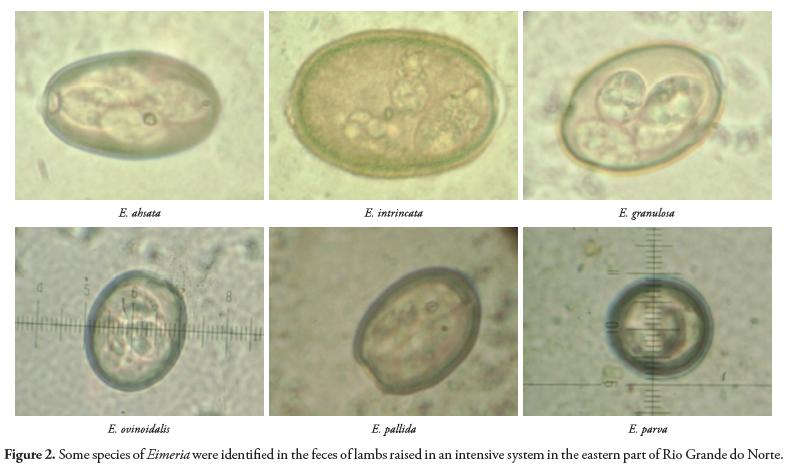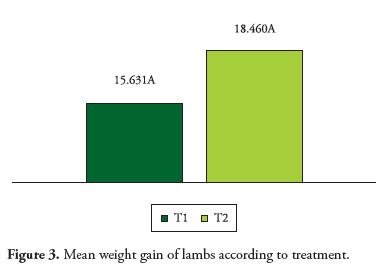Coccidiosis is a serious obstacle to sheep production, which is becoming a limiting factor, especially with regard to lamb production. However, there are few studies on this parasite in the State of Rio Grande do Norte. The aim of this study was to evaluate the action of decoquinate, added to mineral salt, for controlling Eimeria infection in lambs, and to identify which species are infecting sheep in the eastern region of the state. This study was carried out from August 2009 to January 2010, and used 76 animals. These were divided into two treatment groups: one with common mineral salt, and the other with mineral salt enriched with 6% micronized decoquinate. Fecal samples and body weight measurements were taken every 14 days for parasitological diagnosis, weight gain follow-up and quantitative analysis. The study showed that there was a significant difference in OPG only at the 7th collection, but no significant difference in weight gain. The Eimeria species found were E. ahsata. E. crandallis. E. granulosa. E. intrincata. E. ovina. E. faurei. E. ovinoidalis. E. pallida and E. parva. It was concluded that addition of decoquinate to mineral salt gave rise to lower oocyst elimination, thus favoring eimeriosis control in sheep.
Eimeriosis; lambs; coccidiostatic; mineral salt; Macaíba - RN





